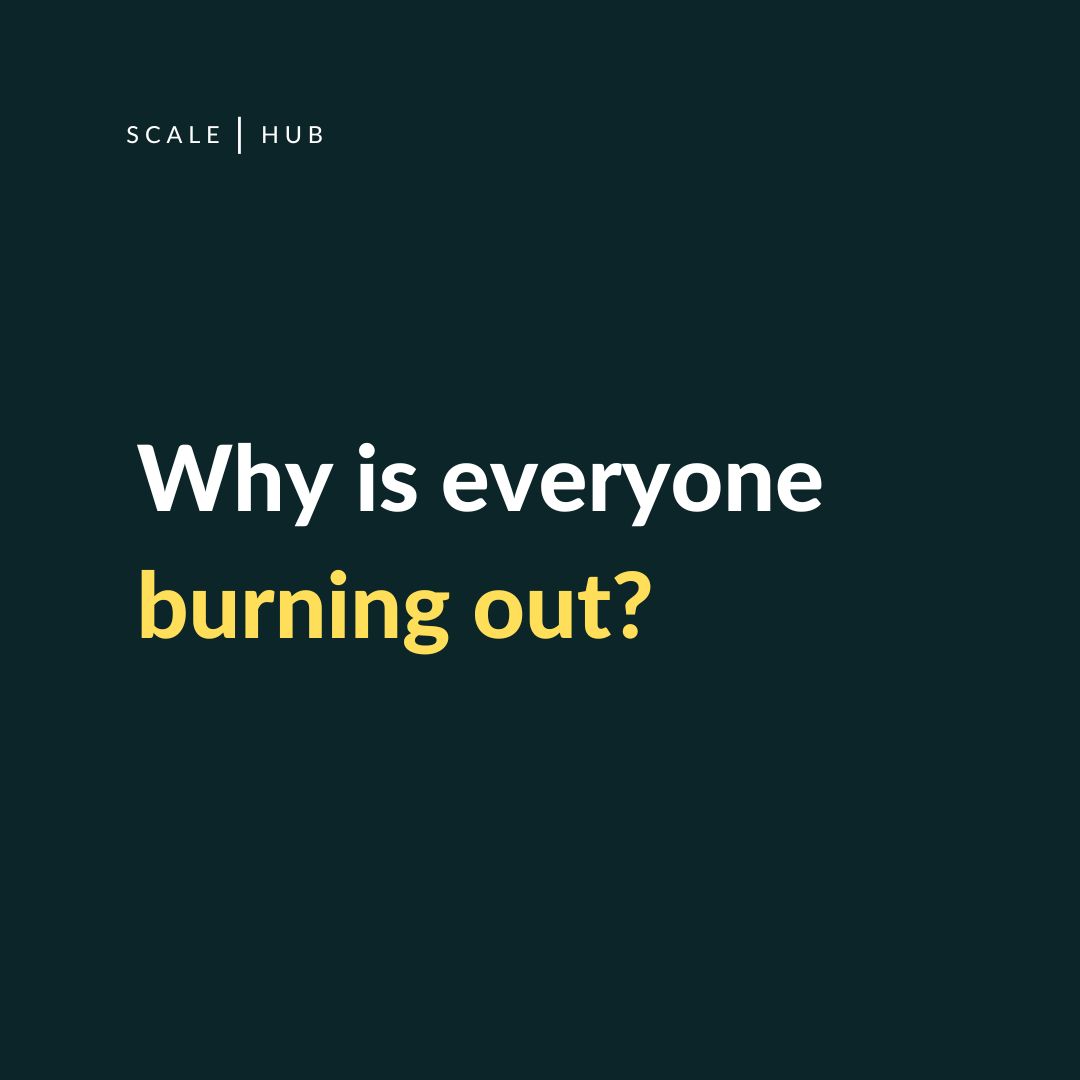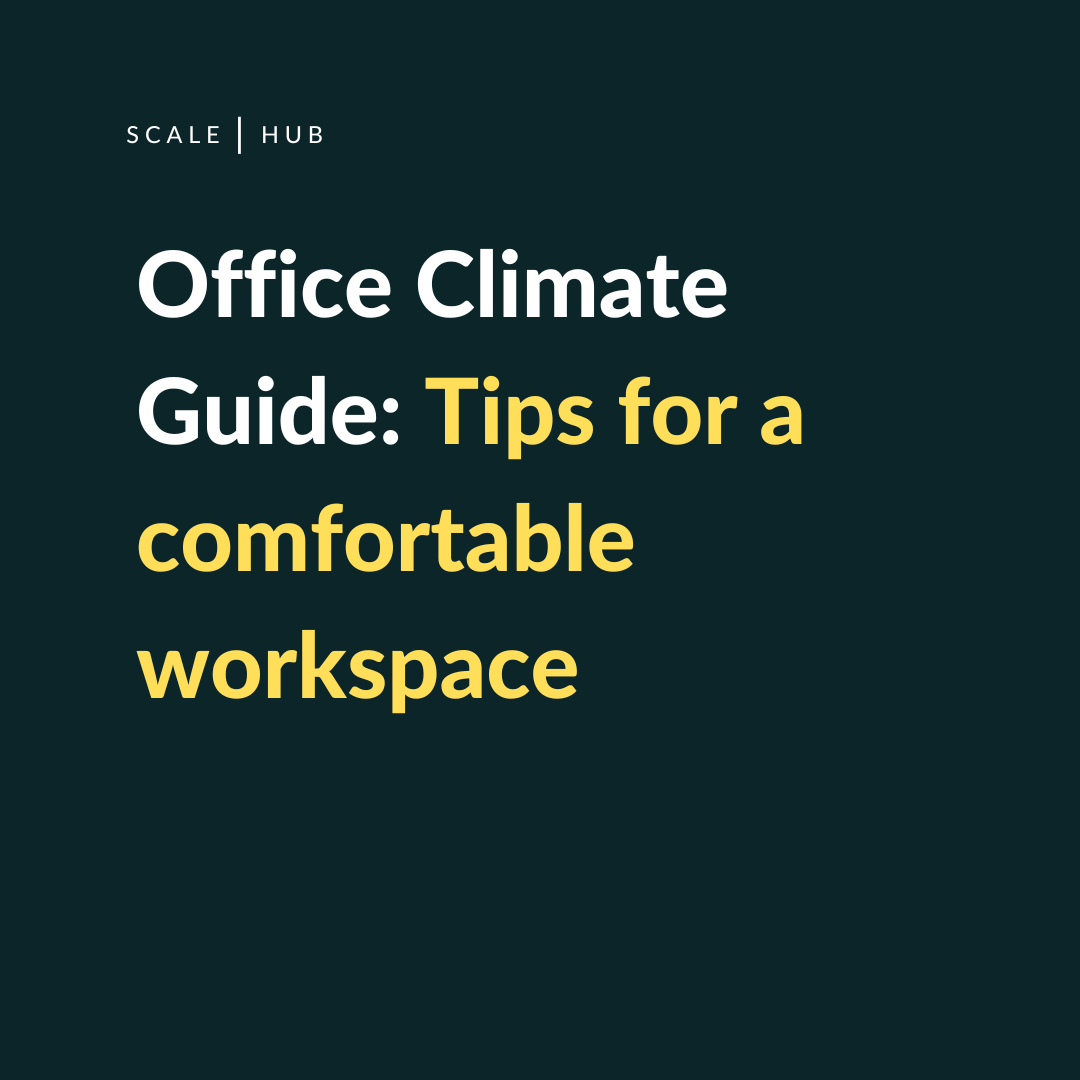
We live in a time where many people are just plain exhausted. In fact, one out of every seven employees is burnt out*. You’ve likely met a burnt-out person. It may even be the one staring at you in the mirror.
If you’re experiencing work burnout, you’re not alone.
Cases of burnout are rampant. Beyond keeping up with work responsibilities, there’s also the drive to keep up with other events, people, and commitments. Eventually, these obligations can become a burden that’s challenging to keep up with; it takes a lot to achieve a satisfying standard of life.
So while you’re busy running around and keeping up, how will you know when it’s time to hit the breaks? How do you recognise burnout? What are the symptoms and what are its causes? How can you prevent and overcome burnout? We hope this article will help you**.
What is Burnout?
Burnout is not just about feeling stressed. Everyone can and will, at some point in their lives, experience stress. Especially if you’re exerting efforts to achieve a goal.
Burnout goes much deeper than that. It involves feeling constantly exhausted, cynical and, as a result, finding it hard to be efficient at what you do. This feeling is usually work-related, and it can affect not just your mental health but your physical health too. It’s that feeling of being perpetually exhausted, annoyed, unmotivated, unaccomplished and unappreciated. It’s the feeling that your workload is too much for anyone to bear (let alone you) and that you NEED a break. It’s the dread that comes when you think of waking up the following day to continue the same motions all over again. With time, people who are experiencing burnout may end up quitting their jobs because they’re convinced that they aren’t in the right place.
What Causes Burnouts?
The primary cause of burnout is stress – unmanaged stress. And several factors can cause this stress. The most common ones:
#1. Heavy Workload
If you have a workload that matches your capacity, you can do your work effectively and have enough time to rest and recover. A healthy workload also allows you to take opportunities to grow and develop professionally.
A heavy workload leaves you feeling overloaded and without the ability to restore a work-life balance.
#2. Lack of Control
A perceived lack of control can affect your personal and professional life. If you feel like you do not have access to the resources you need to be productive at work, this can affect your well-being.
This feeling also comes when you perceive that no matter what you say or do, the circumstances will stay the same. It leaves you feeling frustrated and out of control.
#3. Inadequate Reward
Sometimes, people burn out because they do not feel they are earning an adequate sum compared to the amount of work they put in. This leaves them feeling like the wages or salaries are not worth the effort they invest in their jobs.
This can make you feel under-appreciated, and the feeling can get worse if you feel like you cannot ask for a raise or promotion or if you did and your request gets denied.
#4. An Unfair Work Environment
You are more likely to feel burnt out if you believe that you do not receive fair and equitable treatment at work.
Does your effort get noticed at work? Do you get acknowledged for your contributions, or do other individuals get the praise? Does someone else who is at your level get more bonuses, regular deadline extensions or access to additional resources, and you don’t?
The instances above can heighten the feeling of burnout and can even come with resentment. If not dealt with, it can lead you to think that you need a new job.
#5. Mismatched Values
If the values you hold highly are different from that of your company, your motivation to give your best at work can be affected. And a lack of motivation leads to a significant drop in productivity.
Personal and organizational values are fundamental and deep-rooted. A company’s core values determine the underlying motivations behind its work. If you are not open to adopting those values, with time, you will begin to experience symptoms of burnout.
#6. Workplace Loneliness
Loneliness at work can lead to burnout too. Workplace loneliness is a distressing state where a person is lacking social relationships with others at work.
Relationships with co-workers can affect the mental health of an employee. The average employee spends a lot of time at work, and while there, they want to feel loved, cared for, and included. If they feel like they are not among supportive people that they can trust, it can lead to stress and loneliness.
This stress affects teamwork, which in turn, has a negative impact on productivity at work. Also, burnout can be contagious. So, employee burnout can affect the morale of the entire team.
You can overcome loneliness at work by actively improving your interaction and connection with co-workers. If you feel that nothing can be done to improve the relationships at work, then you may need to change your job.
How to Recognize the Symptoms of Burnout
How can you tell that the stress you’re feeling is actually a case of burnout?
Not all cases of distress at work are burnout cases. Sometimes you may feel overwhelmed because you are working on a particularly difficult case. But this does not mean that you are burnt out. All you may need is some time off to rest, collect your thoughts and come back refreshed.
A combination of symptoms may be your cue to go see a doctor:
#1. Exhaustion
A continuous state of energy depletion. It is not referring to the day when you find it hard to get out of bed and face the day. That can be remedied with a few days off work.
This kind of exhaustion is the type that stays on, even after a vacation. When you resume, it seems like every strength you gathered gets drained. It is chronic, and it is not specifically tied to a particular project. It is like being under a persistent cloud that weighs on you mentally and physically. It makes you irritable or impatient with co-workers, customers and clients.
#2. Work Detachment
Besides chronic exhaustion, burnout comes with a feeling of being detached from your job. You have no motivation to do your work, and you may even approach each task with a feeling of cynicism.
Your sentiments about your work become pessimistic, and sometimes you feel numb and disinterested, even when you are meeting your goals. There is no pleasure that comes with deadlines met or work achievements.
#3. Reduced Productivity
The third symptom of burnout is a drop in your work performance. This is inevitable. The lack of motivation and inspiration leads to a decline in the quality of your work.
Work detachment comes with a feeling that says you couldn’t care less about what happens at work. Sometimes, you may even meet your deadlines or achieve your work goals. But it will take more time, effort and resources than it used to. Others at work may not notice it, but you know that your work quality is not what it used to be.
Burnout involves having all three of the symptoms above at the same time. If all three symptoms are not present, you may be experiencing work-related stress and you may want to consider taking some days off, changing your approach to work, or requesting a change of certain conditions at work.
How to Prevent Burnouts
Burnout is an issue that affects your health both physically and mentally. Like other health issues, it is always better and less costly to prevent burnout than to remedy it.
If you are feeling stressed at work, you should deal with the situation. Here are some tips that may help:
#1. Communicate
If you perpetually feel exhausted, annoyed, unaccomplished and unappreciated at work, you want to pinpoint the cause of these feelings and communicate them to your boss.
Do you feel that you don’t get the credit that you deserve? Are your deadlines unfair, or are your resources inadequate? Do you feel you need a raise or promotion? Are your values different from those of your organization? Do you think that the company may shift their stance on their values? Then consider politely speaking up and making a request to your employer.
They may be unaware of your needs, and you will need to point it out before they can take the proper action.
#2. Be Supportive
If you are struggling with a feeling of loneliness at work, it may help you to consider being the colleague that you would like others to be. You feel more combative by taking this approach, taking matters into your own hands instead of waiting on others to change their behaviour. Try to build meaningful and supportive friendships at work.
Most times, you cannot choose your colleagues at work, but you can improve your relationship with them. It could be as simple as making the time to ask how their day is going — and really listening of course. You can genuinely compliment their looks or tell them how much you appreciate their work and abilities. Positivity is contagious.
#3. Manage Your Workload
If you feel like your workload is harder than it should be, first consider why this is so. Did you just get a promotion? Did you move to another department with a different job description? Have you been managing your time well?
Managing your time properly will provide you with enough time to rest between tasks and reduce the feeling of stress that leads to burnout. Maybe you have the option to delegate some of your tasks to a junior worker?
How to Recover From Burnouts
If you feel burnt out, one of the first things you should do to overcome it is to try and influence your environment by changing what you can change:
- Reach out to someone close to you, like a family member or close friend. Ensure that they are someone who can listen without interruption. The person does not have to ‘fix the issue.’ Opening up will help to calm your nerves and relieve stress. It can even help identify the source of your stress.
- Develop friendships with colleagues at work. Close friends at work can provide a buffer for you when you feel under pressure and give you the needed time to take a break and bounce back from a stressor. Also, having people that you chat and joke with at work can help to deaden the effects of burnout and improve your work performance.
- Avoid negativity at work. This means that you should not hang out with negative people who complain or gossip. Limit the time that you spend in the company of such people so that their negativity does not affect you.
- Try going for a work-life balance. Spend time with loved ones and focus on the simple life. Take a walk in the park, go for a picnic, go to the movies. You can also join social or support group with like-minded people. You can join a professional association with people facing the same workplace demands, as you and make friends among them.
- Try changing your attitude towards your work. Focus on looking at the aspects of your job that you like. Look at the reason why you chose that career or took that job in the first place. This can help to restore a sense of purpose and control at work.
- Eat healthy food and exercise. Make sure you get enough sleep every night. It sounds simple but our motivation is often our appearance, not our health. Taking good care of our bodies and minds will leave us with a more positive outlook on life. This positivity can spill into your workplace.
- Set boundaries. Know when to say ‘No’ to new tasks. If you take a day off, stay off work. Take a break from technology and completely disconnect. Put away your gadgets and avoid emails and all social media. Relax instead and get plenty of sleep.
Ultimately, you may need to get a new job. You are not helping anyone by staying in a job that makes you miserable. Ensure that you have thought through and weighed all the factors contributing to your burnout and attempted to make the necessary changes. If your best efforts do not work, then you may conclude that it is time to leave. Find something that gives you new energy.
—–
* Source: https://www.tno.nl/nl/newsroom/2021/11/kleine-daling-burn-out-klachten-2020/
** As stated in the intro, we hope this article helps you recognize burnout signs so you can seek advice from a professional. By no means are we professionals on this subject; go to your doctor for help and care.




[…] great workflow management creates room for a high level of productivity. It also helps prevent burnout by keeping the level of chaos (thus stress), that comes with handling multiple business activities, […]
Comments are closed.